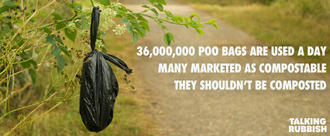-
Stop Rugby Pyrotechnics!These were initially used only when teams came onto the pitch but are increasingly used every time points are scored. Every use pollutes the air, adding to climate change, and can't be good for fans - and especially players - breathing in the smoke. We should be doing all we can to reduce the use of fossil fuels, and this is just one example where they are needlessly escalating, damaging health and the climate.2 of 100 SignaturesCreated by Ross Marnie
-
Ban forever chemicals in the UKIt’s one of the most dangerous poisons you’ve probably never heard of – linked to cancer, fertility issues, and even birth defects – and now it’s everywhere. "Forever chemicals" (PFAS) don’t break down in the environment. Instead, they build up over time, and are now found in our drinking water, food, blood, and even the human placenta. [1] But right now, we have a great opportunity to push for their ban. The EU is already racing to a full ban, and the UK government is holding a consultation asking for the public’s opinion. [2] Let’s flood the consultation with 100,000 voices to demand a ban on these poisons! This isn't just a petition. When we reach our target, 38 Degrees will submit our signatures to the official DEFRA consultation. Add your name and share -- before the consultation closes. These toxic chemicals are hiding in plain sight – in everyday items we use without a second thought: non-stick pans, waterproof coats, make-up, and food packaging. [3] PFAS are almost impossible to avoid. They seep into our daily lives, and stay literally forever. But while Europe is banning the entire group of over 10,000 PFAS across industries, from food packaging to toys, the UK government is only talking about banning them in firefighting foam. British families deserve the same protection as those in Europe — and we have a window of opportunity to fix this. The government is deciding its "chemical strategy" right now. Let’s show them that British voters won't accept second-class safety, and push them to match the EU's ban. Add your name to the consultation, to tell Environment Secretary Emma Reynolds to ban forever chemicals in the UK. NOTES: [1] Newsweek: Forever Chemicals Disrupt Placenta, May Add Risk to Pregnancies [2] FieldFisher: PFAS Regulation in the UK and European Union: November 2025 Overview [3] The Guardian: Are PFAS in everything? What you need to know about ‘forever chemicals’46,056 of 50,000 Signatures
-
Stop the developers attempt to overturn August planning refusal at Prestleigh Road⚠️ Shock planning return for Our Village?! 🏡❌ I’m honestly baffled 😳 to see this planning application back on Somerset Council’s table. Not often that happens — usually, once it’s gone through an officer’s report, that’s it. So why now? Here’s the kicker: it’s an outline application 😡. That means: • No actual houses need to be built yet 🏚️ • They just get to change the principle of the land from agricultural ➡️ housing 🌾➡🏠 • And it could push our village boundaries further out 🚧 Meanwhile, there’s plenty of land already available ✅ — old factory sites, brownfield plots, areas in the local plan. We don’t need to eat up more countryside just to satisfy developers’ profits 💸. Also, I’m incredibly puzzled .. 🤷♂️why is there no new officers report or any assessment and why has gone directly to planning board From what I can see, this has all the same problems as the last plan: • Wrong type of housing ❌ • Wrong location ❌ • Minimal benefits to the village ❌ And here’s a huge problem: we STILL don’t even have a secondary school locally 🏫. Children would continue to be forced onto circular bus routes to Shepton Mallet or Castle Cary 🚍💨, and those additional transport needs are often ignored. This isn’t just inconvenient — it’s a real community failure. And don’t get me started on developer 💰💰💰 contributions… supposedly to help the community, but Somerset Council has one of the worst records for making developers actually pay up 💀. “Oh, they can’t meet their profit margin” 💸… and the council rolls over. Seriously? 😤 We need homes, yes. But we need: ✅ Affordable homes ✅ Properly designed homes ✅ Homes in the right places Not another cookie-cutter sprawl ruining our village and our community 😡 Perhaps this is yet another incompetent error administration? By who ? The developer ‘chancing it”.. someone else ? 🕵️🪽🐷🐖🪽- I mean given it is adjacent to a former pig farm perhaps flying pigs are as likely! If you care about our village, this is the kind of thing we can’t let slip through. Speak up, comment, and ask questions before it’s too late 🗣️✊331 of 400 SignaturesCreated by Barry O'Leary

-
Ocado: Ditch the plastic bagIn 2024, single-use plastic bag sales in England rose for the first time since the carrier bag levy was introduced in 2015 - a 7% increase, reaching 437 million bags. Shockingly, Ocado alone was responsible for 221 million of them, 30 million more than in 2023 - and the highest figure of any other supermarket. Although Ocado points to its “closed-loop” system, with the majority of bags collected from customers, these bags are not reused but only recycled. Recycling still requires a LOT of energy and generates more pollution - and the better option is to just stop making them at all. Ocado must act urgently and responsibly: phasing out single-use plastic carrier bags, investing in truly reusable alternatives, and reversing this troubling upward trend in plastic waste. Customers want solutions - not excuses.34,047 of 35,000 Signatures
-
Stop Burning Our Moors: Protect our kids, not grouse hunts.Landowners burn heather for driven grouse shooting, leading to harmful air pollution, increased flood risk, and increased wildfire risk, all while releasing tonnes of carbon into the air, accelerating climate change. Our children’s health and futures need to be prioritised over a wealthy person’s sport Wealthy landowners are burning our moorlands for grouse shooting on the land. But the toxic smoke from this burning blows over surrounding communities and releases tonnes of carbon into the atmosphere. It’s terrible for our health, for the planet, and for animals. It needs to stop. Burning heather causes harmful air pollution, resulting in spikes in hospital admissions in nearby communities. Notably, the event on the 9th October 2023 in Sheffield, when burning on Moscar Moor caused smoke to blanket the city, raised levels of harmful PM2.5 air pollution to five times the legal limit. The highest levels were recorded at Lowfield Primary School. Children are particularly vulnerable to poor air quality, and those children were exposed to harmful levels of air pollution for hours that day. Our children deserve to breathe clean air. The peatlands of England are perhaps our biggest carbon store - more than the forests of the UK, Germany, and France combined - yet burning them releases tonnes of CO2 into the atmosphere, accelerating climate change. These dry, burnt moorlands also cause rainwater to simply run off them, causing flooding in nearby communities. A healthy, wet moorland with lots of sphagnum moss acts as a natural flood defence, soaking up all the excess water. A wetter moorland also helps stop wildfires from spreading. Landowners argue that controlled burning stops wildfires, but because the land has been drained it is more likely to catch fire. As parents, we worry so much about the futures of our children, and all children. With the climate crisis in full swing, we are seeing more floods and wildfires every year, yet this incredibly valuable asset on our doorstep is being burnt to a crisp. We need to be doing all we can to protect our kids now and into the future. Our children deserve a liveable climate. Additionally, the practice of grouse moor management has created a monoculture. Did you know that real healthy moorlands are more than just heather? We should be seeing a much wider variety of plants and animals on our moors, but the land is managed to inflate the population of grouse to the detriment of many other species. Landowners and gamekeepers are accused of killing birds of prey, corvids, and small mammals - anything they see as a threat to the grouse population. Not to mention the poor grouse themselves, who are killed simply for fun. When you take your kids for a walk through a grouse moor, they won’t see much. They are devoid of life, with few birds or insects. Compared to a walk through a healthy moorland, where they may spend hours foraging bilberries, finding frogspawn, admiring mosses, hunting for minibeasts, and spotting birds like kestrels and stonechats. Our children deserve thriving moorlands to joyfully explore. They deserve good health and hope for the future. Our children deserve an end to moorland burning.331 of 400 SignaturesCreated by Parents For Future Sheffield & High Peak
-
Victoria Park Water Maze, needs WATER!The Water Maze in Victoria Park, Bristol is a unique and historically significant feature. • Design and Construction: The maze was designed by Peter Milner and constructed between 1983 and 1984 by the Avon County Community Environment Scheme and Bristol City Engineers. It was built to commemorate the end of sewage discharge into the River Avon • Water Source: The maze is supplied by spring water flowing through an old pipe originating from Knowle Hill. This pipe is part of a historic water system that once carried clean water to St Mary Redcliffe Church in the 12th century • Structure and Layout: The maze is circular, with a diameter of approximately 8.5 meters. It features a shallow brick channel through which water flows from the center outward. The path is about 15 cm wide, with a 21 cm gap between paths. The layout is unicursal, meaning it has a single, non-branching path with no dead ends • Symbolism and Inspiration: The design is inspired by a roof boss in St Mary Redcliffe Church. It symbolizes Bristol’s historical and modern efforts to secure clean water, referencing both medieval and 20th-century infrastructure developments • Location: The maze is situated on the northeast side of Victoria Park, near St Luke’s Road, between Bedminster and Totterdown. Unfortunately it now runs dry, it has not had water flowing through it for some years now. We want to put pressure on Bristol City Council and Wessex Water to reinstate the water, which is a crucial part of the Water Maze in Victoria Park. If you are a resident of Windmill Hill or a visitor to the park, please add your name to the petition to make this happen. How can you have a Water Maze with no water, it is a heritage feature and requires the respect that it deserves.256 of 300 SignaturesCreated by Cllr Stone
-
Save Arena Essex- Tell Google to search elsewhere!Wedged between the Mar Dyke Valley and Lakeside Retail Park, the former Arena Essex Raceway is not your usual wildlife haven. Where once stock cars and speedway bikes lined up to cross the finish line first, the dust has now settled and nature thrives on the former Arena Essex Raceway site. Its complex history has led to a unique 52ha mosaic of brownfield features, calcareous grassland, flowery Thames Terrace Grassland, bare ground, scrub and young woodland - earning it a nationally important invertebrate population and Local Wildlife Site status. This hidden secret in Thurrock has no public rights of way, but much of the site has been used for many years for fishing and informal walking and cycling. It has also been found by wildlife in an increasingly developed landscape. Its 52ha are home to hundreds of species of invertebrates, including Brown-banded Carder Bee (Bombus humilis), Five-banded Weevil-wasp (Cerceris quinquefasciata) and the Dingy Skipper butterfly (Erynnis tages)- with many more to be found- as well as rare plants such as Endangered Broad-leaved Cudweed (Filago pyramidata) and birds such as Red Listed Nightingale (Luscinia megarhynchos). The chequered flag was waved on the Raceway in 2018 and its future as a wildlife haven is now at risk from a new data centre campus for Google. The Google-associated ‘Global Infrastructure UK Limited’ plans would lead to over 80% of its precious Open Mosaic Habitat on Previously Developed Land being lost. Meanwhile, Google boldly touts claims in its 2025 Sustainability Report of “Cultivating nature on our campuses” and “rebuilding nature in the very places it’s been paved over”. Buglife is calling on Google to live up to its sustainability claims by changing course and sparing this unique wildlife site. Tell Google to search for somewhere else for their development!30,742 of 35,000 SignaturesCreated by Paul Hetherington

-
Protect National Landscapes (Areas of Outstanding Natural Beauty)Both present and future generations need the beauty of National Landscapes for their mental and physical well-being. The biodiversity of these areas (on which we depend for our survival) must not be destroyed by building houses in the name of economic growth. Once gone, the beauty and the biodiversity have gone forever.70 of 100 SignaturesCreated by Roger Gibson
-
Teach children in the UK how to help the planet!We would like the UK government to implement climate change and protecting the earth into all school curriculums to ensure that our generation are informed about the choices they make and the impact we have on our planet. From pollution, litter, plastic waste, food production to planting and sustainability. If lots of people sign our petition we will be able to make sure that children in the UK will know about how humans affect the Earth every day. This year we have learnt about climate change with the Zero Carbon Schools programme. We learnt about different places like the Amazon rainforest, Ethiopia, Wales, and the Solomon Islands and how they are badly affected from climate change. It is terrible and detrimental. We learnt about ways we can make changes in our school community. We have taken action against climate change by reducing food waste in our school. Our generation should learn about climate change by doing projects like we did in zero carbon schools because it is important. It will help us all learn how to stop polluting and protect our oceans. We would like you to help us with climate change in schools so we can help the Earth. It will make the world a better place for us and generations ahead.20,556 of 25,000 SignaturesCreated by Green Schools Project with year 5 pupils from St Mary Magdalene & St Stephens CE Primary

-
Bring back the ancient woodlands smothered beneath your timber plantationsAncient woodlands are vanishing – and with them, some of our most loved and endangered wildlife. Over 100,000 acres of our public forests used to be ancient woodland - that’s bigger than the Isle of Wight. But instead of flourishing as rich, native wood, much of it has been turned into sterile plantations of fast-growing, non-native trees – choking out the life that once thrived there. Buried in these Ghost Woods are the seeds, fungal networks and surviving species which cling on from centuries-old ecosystems. If we act now, we can bring them back. But if we miss this window, these ancient woodlands will be lost forever. According to data published in the Guardian, at the current rate of progress it will take the managers of our public forests, Forestry England, over 80 years to even start seeing meaningful progress for all of these precious woodlands. If restoration isn’t sped up, will there be anything left to bring back to life? Our ancient woodlands support more species than any other habitat in England, but there is currently no funding to restore our publicly owned Ghost Woods. Together we can change this. The government has committed to spending over £1 billion in order to create brand new woodland sites - but restoring our Ghost Woods would cost less than 20% of that. Brand new trees and forests are great for hitting headlines, but scientists have shown that it's our ancient woodlands that are home to our most beloved species. Forestry England manages our public forest estate - it is their job to protect and restore our woods for us, the public. But the government has no public commitment to funding this vital work, despite private landowners being paid for restoration on their land out of the public purse. We have an opportunity to change this. Join the hundred thousand people across the country who are calling for our lost woodlands to be brought back from the dead!134,547 of 200,000 SignaturesCreated by Dame Judi Dench
-
No Atlantic Bluefin Tuna Fishing in Channel Island watersMore research needs to be done to establish: -The reason for the return of bluefin tuna to Channel Island waters and whether warming sea temperatures have forced them to relocate here to find prey -The true extent of current bluefin tuna stock in UK waters123 of 200 SignaturesCreated by Andy Bretel
-
Ban environmental claims on dog poo bagsAre you fed up with companies claiming plastic is compostable or biodegradable when there is no way it can be? So are we! TL:DR Compostable dog poo bags DO NOT break down in the open environment. As they are only sent for incineration or landfill, we do not believe manufacturers should claim they are compostable or biodegradable. Our ask We would like dog poo bag manufacturers and retailers to remove anything that suggests plastic dog poo bags will break down from all marketing; including, the bags themselves, websites and adverts. This includes but is not limited to the words “compostable”, “biodegradable”, and green claims like “eco”, “environmental” or “good for the planet”. Basically, we want all dog poo bag manufacturers and retailers to follow the guidance laid out in the Green Claims Code. Why? For three primary reasons: • Dog poo should not be composted (home or industrial) so suggestions that a dog poo bag will break down or be composted is false • We believe suggesting dog poo bags break down encourages littering as people believe the bag will disappear over time – it won’t • The better material for dog poo bags to be made from is recycled plastic, generating a market for flexible plastic recycling, which will have mandatory household collection from 2027. This will avoid flexible plastic going to incineration, which is the current trajectory, without a clear market for the output. The problem With 13 million dogs in the UK, and around 36 million bags used a day, this is a massive problem. Add into that the estimated 260,000 people who leave the poo bags lying around, according to Keep Britain Tidy who support the petition, and we feel this is a problem we need to sort out. Aren’t compostables better? Elephant (or should that be dog) in the room, compostables must be better for the planet, right? Well… not quite. Here’s the thing; context matters. When it comes to plastic, how it’s used is just as important as what it’s made from. And in this case, dog poo should never be composted or recycled. So, why do companies claim it will be? Compostable plastic can be useful, it can reduce our reliance on oil-based plastic (although most compostables dog poo bags are not made of plants - see the FAQ on our website for more), and in specific applications could be better than traditional plastic. Examples of uses that could be better than non-compostable plastics include food waste liners, bags for fresh produce and meats, and even tea bags. We are not proposing to ban the use of compostable plastic in dog poo bags, as some companies may feel it is the best plastic to use and we do not want to restrict any innovation. However, we do not believe these products should be marketed to the public as such if there is no way for them to degrade in the UK. Worse still, the word “compostable” creates confusion. A small but problematic number of dog owners assume that if the bag is compostable, it’s okay to leave it behind. That it, and the poo inside, will magically vanish. Spoiler: it won’t. But wait, aren’t compostable plastics made from plants? Doesn’t that make them better? Not necessarily. Any plastic can technically be made from plants, but making compostable plastics from bio-based sources doesn’t guarantee a lower carbon footprint. In fact, compostables and virgin plastic can have a carbon footprint around 30% - 80% higher than recycled plastic! To make matters worse, according to Pet Impact (another campaign supporter), most compostable poo bags are made with oil-derived plastics, see the FAQ on our website for more. The truth Here’s the bottom line; compostable dog poo bags will never be composted. They end up in landfill or incineration. There is precedent for this. In 2019, the Advertising Standards Authority ruled that Ancol Pet Products Ltd could not use the line “these thick waste bags are biodegradable to lessen your dog’s impact on the environment” as claiming biodegradability on a bag that had no route to biodegrade was misleading. Despite this, most dog poo bags today are marketed as “compostable” or “biodegradable”, and many contain the word “eco”. This could not be further from the truth, and we believe is nothing more than greenwashing. That’s why we’re calling for a ban on environmental claims on dog poo bags that don’t adhere to the Green Claims Code. Let’s keep it simple, sustainable, and honest, and save the word “compostable” for products that are actually compostable. The law The Advertising Standards Authority published new advice in April specifically addressing claims surrounding biodegradable and compostable products. The key tenets of this advice state that marketers should: • Ensure claims that products are biodegradable or compostable are genuine • Don’t exaggerate the biodegradeable content of the product • Don’t omit information material to a product’s ability to biodegrade or compost • Ensure absolute environmental claims apply to the product’s full lifecycle We believe that compostable dog poo bags fly in the face of each of these points. Yet the advice is just that - advice. It isn’t legally binding and producers are not compelled to act on it.606 of 800 SignaturesCreated by James Piper
Hello! We use cookies to improve your experience by providing insights into how the site is being used. Find out more.
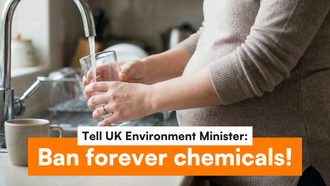
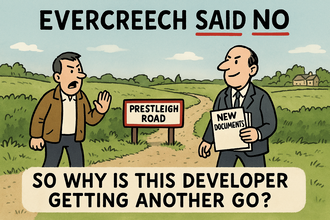
.png)

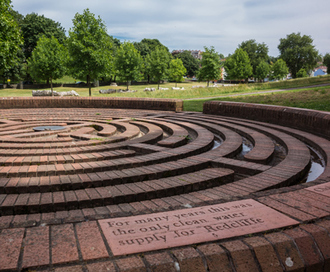
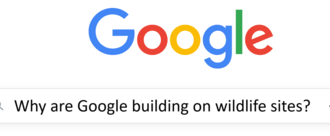
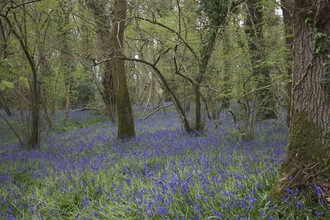
.png)
.png)

